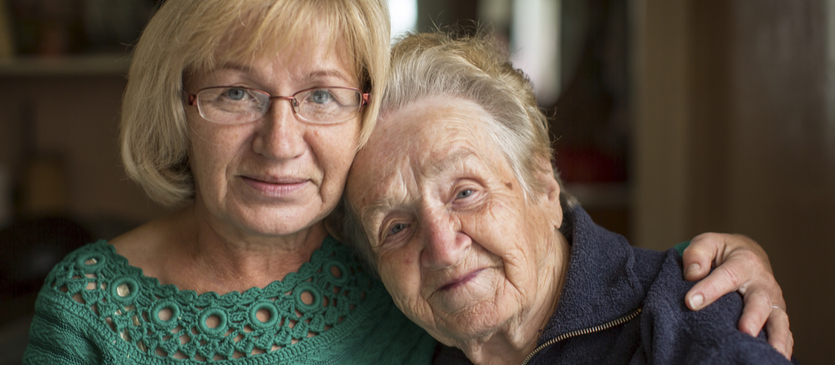The Great Australian Dream is home ownership. It’s in our culture to be attached to your home and derive pride and joy from the roof over your head. It’s often a person’s biggest investment too, so it’s important to keep up with maintenance to protect and improve the value of the asset. Unfortunately, home and garden maintenance can become harder and riskier for elderly homeowners.
Even those who are healthy, confident and capable in their 70s, 80s and 90s will find certain jobs around the home and in the garden are no longer practical or safe, and they will need extra help.
Checking a leak in the roof or clearing out the gutters may seem like a simple job that will ‘only take a few minutes’ but DIY jobs involving ladders often result in severe injuries with long-term, devastating consequences.
Sadly, falls from ladders are increasingly common. An Australian medical review between 2002-2012 found roughly 5,000 people each year are hospitalised for injuries sustained after falling off a ladder – four out of five incidents happened at home doing “Do-It-Yourself”/ “DIY” jobs.
Older men, aged 64 and over, were most at risk of a DIY injury. Ladder-related falls accounted for more than one-third of injuries overall for men in this age group. During the ten-year period analysed, there were 226 deaths due to ladder-related falls, and of these, 82 per cent were over 60. Men over 60 years also sustained the most serious injuries with longer recovery times.
Our balance diminishes with age and can be compounded by other factors like poor eyesight and medications affecting blood pressure and balance.
Overreaching, unstable grounding, carrying things up ladders, standing on the top wrung or wearing inappropriate footwear were the main causes for falls.
The key to safe home maintenance is to know your limits and know when to outsource to a professional. This is especially critical for elderly men who have a lifetime of DIY experience and know-how, so may be reluctant to let these skills go.
Calling on the professionals to solve roof issues or heavy-duty tree pruning is a must. Hire someone once a year to clean and repair gutters and check the roof for cracks – especially after heavy storms.
Painting is another example where it makes sense to hire professionals. Qualified and experienced painting teams can be faster, cleaner and produce a higher-quality finish than the DIY alternative, so it is worth the investment, especially if the home has high areas requiring ladders or scaffolding.
For simple jobs like changing light globes or replacing smoke alarm batteries, younger, fitter family members or friends should be called on to help.
There are other heavy-duty jobs your elderly relative should outsource too. In the garden, an elderly homeowner may find great enjoyment with pottering, weeding and planting, but lifting heavy pots and equipment, or starting and pushing a lawn mower can be left to a local gardener. It can be a great opportunity to employ a young neighbour or grandchild who could earn some extra pocket money by mowing the lawn – especially over the summer holidays when the lawn grows faster.
The key thing to remember is to slow down and take extra time to complete DIY tasks slowly and safely. Lifting anything requires the correct posture with knees bent to reduce the strain on the back. Moving furniture or other heavy items should only be attempted with help.
Family members could offer to come over on a regular basis and make extra time to assist with any jobs. In fact, it’s the knowledge and reassurance of the willingness and availability of family and friends to help that is the best injury prevention measure. Feeling supported will discourage the elderly parent to attempt the task on their own and put their safety at risk.
The longer the home can be maintained without injury, the longer the elderly homeowner will feel independent, safe and secure in their own home.




